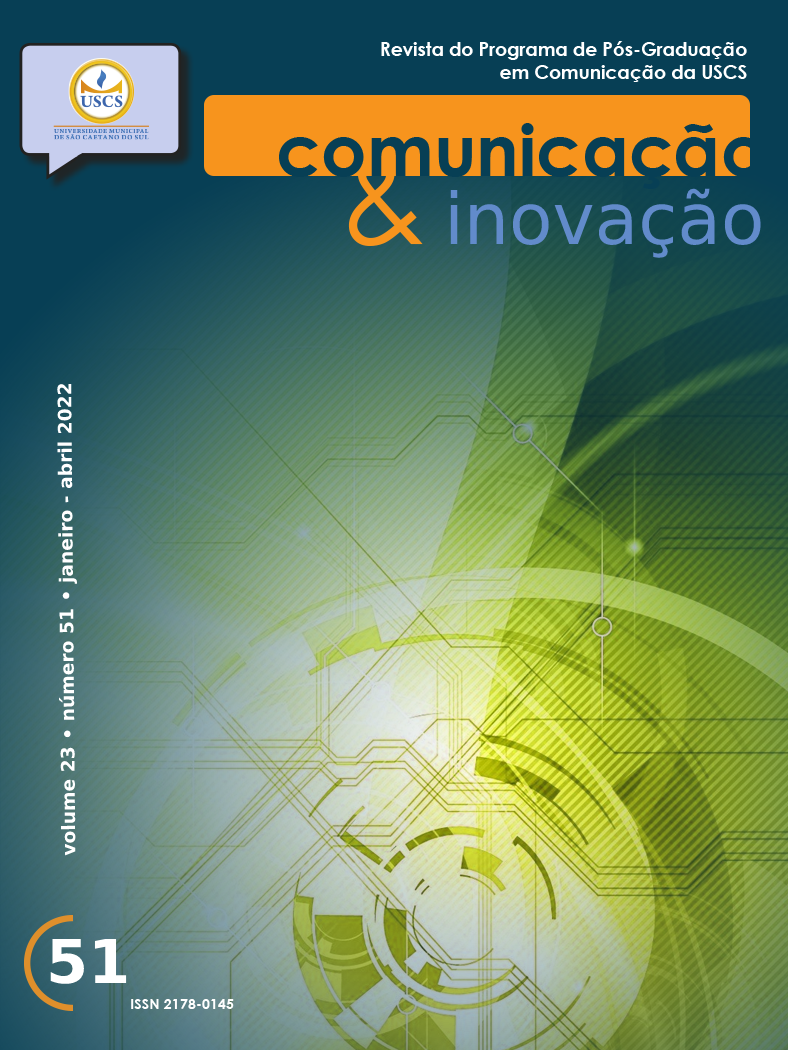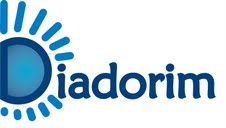Post-truth: language, technology, social behavior, and ethics
DOI:
https://doi.org/10.13037/ci.vol23n51.8111Keywords:
Post-truth, Social behavior, EthicsAbstract
This article addresses post-truth as a social phenomenon. It exposes the evolution of language and senses and discusses information and communication technologies, and the acceleration of the speed and extend of information. Furthermore, it addresses the ethics of what information is produced as well as the contradictions and challenges in relation to the post-truth. Finally, it highlights the pedagogical implications for this post-truth moment.
Downloads
References
AMON, D.; IDIART, S. A. Linguagem: uma abordagem histórica e conceitual para a compreensão e crítica à pós-verdade. In: GUARESCHI; AMON; GUERRA. Psicologia, Comunicação e Pós-Verdade. Florianópolis: Abrasp, 2017. p. 53-81.
AMON, D. O contexto socioantropológico da pós-verdade. In: GUARESCHI; AMON; GUERRA. Psicologia, Comunicação e Pós-Verdade. Florianópolis: Abrasp, 2017. p. 45-52.
ARENDT, H. Thinking and Moral Considerations: A Lecture. Social Research, 38. Autumn, 1971.
BARAN, P. On Distributed Communications: introdution to distributed communications networks. California: The Rand Corporation, 1964.
BARRERA, O. et. Al. Facts, alternative facts, and fact checking in times of post-truth politics. Journal of Public Economics, 182, p. 1-19, 2020. Disponível em: https://doi.org/10.1016/j.jpubeco.2019.104123
BARTHES, R. A atividade estruturalista. In: BARTHES, R. Crítica e verdade. Trad. Geraldo Gerson de Souza, São Paulo: Editora Perspectiva, 1970.
BARZILAI, S.; CHINN, C. A. A review of educational responses to the “post-truth” condition: Four lenses on “post-truth” problems. Educational Psychologist. vol. 55, n. 3, p. 107–119, 2020. Disponível em: https://doi.org/10.1080/00461520.2020.1786388
BOTTÉRO, J. A escrita e a Formação da Inteligência na Mesopotâmia Antiga. In: BOTTÉRO, J.; MORRISON, K. (Org.) Cultura, pensamento e escrita. São Paulo: Ática, 1995, p. 9-46.
CASSIRER, E. Linguagem e mito. 4. ed. São Paulo: Perspectiva, 2000.
CASTELLES, M. A mudança está na cabeça das pessoas. Revista Época, 11/10/2013.
DELMAZO, C; VALENTE, J. C. L. Fake news nas redes sociais online: propagação e reações à desinformação em busca de cliques. Media & Jornalismo, vol. 18, n. 1, 2018. Coimbra University Press. DOI: https://doi.org/10.14195/2183-5462_32_11
ECO, U. Tratado geral de semiótica. São Paulo: Perspectiva, 1980.
FANTINI, J. A. Política como religião: ciberdemocracia e intolerância nas novas mídias. Rev. ComCiência, Dossiê 186 Unicamp, Março, 2017. Disponível em: https://www.comciencia.br/pos-verdade-e-pos-falsidade/#more-940
GENESINI, S. A pós-verdade é uma notícia falsa. Revista USP. São Paulo, n. 116, p. 45-58, janeiro/fevereiro/março, 2018.
GUERRA, A.; BARBOSA, C. Crítica e Pós-Verdade. In: GUARESCHI; AMON; GUERRA. Psicologia, Comunicação e Pós-Verdade. Florianópolis: Abrasp, 2017. p. 101-160.
JANDRIC, P.; MCLAREN, P. Critical intellectuals in postdigital times. Policy Futures in Education. p. 1-14. Outubro, 2020. Disponível em: https://doi.org/10.1177/1478210320964372
KEYES, R. The Post-Truth Era: Dishonesty and Deception in Contemporary Life. New York: St. Martin Press, 2004.
MARK, L. Por que as pessoas acreditam nas teorias da conspiração, e como conseguir que mudem de opinião. Os fatos e os argumentos racionais não são muito eficazes na hora de alterar as crenças. Jornal El País, 26/08/2017. Disponível em < https://brasil.elpais.com/brasil/2017/08/23/ciencia/1503498083_674014.html>. Acessado em novembro 2019.
MUIS, K. et. al. The catcher in the lie: The role of emotions and epistemic judgments in changing students’ misconceptions and attitudes in a post-truth era. Contemporary Educational Psychology. vol. 62, p. 1-16. Julho, 2020. Disponível em: https://doi.org/10.1016/j.cedpsych.2020.101898
OUP, 2020. Word of the Year 2016. Disponível em: https://languages.oup.com/word-of-the-year/2016/
PALUDO, J.R. Pós-verdade: Linguagem, tecnologia e ética. Publicação de Resumo. https://www.unifacvest.edu.br/assets/uploads/files/arquivos/84a76-anais_2019.pdf
PETERS, M. et. al. A viral theory of post-truth. Educational Philosophy and Theory. p. 1-9. Abril, 2020. Disponível em: https://doi.org/10.1080/00131857.2020.1750090
PROCTOR, R. Agnotology: a missing term to describe the cultural production of ignorance. In: PROCTOR; SCHEIBINGER. Agnotology: The Making and Unmaking of Ignorance. California: Stanford University Press, 2008.
SAUSSURE, F. Cours de linguistique générale. Edição crítica de Rudolf. Engler, vol.1. Wiesbaden: Otto Harrassowitz, 1968
SCHOPENHAEUER, A. A arte de ter razão: 38 estratagemas. Petrópolis, Vozes, 2017.
SHELTON, T. A post-truth pandemic? Big Data & Society. p. 1–6. Julho-Dezembro, 2020. Disponível em: https://journals.sagepub.com/doi/10.1177/2053951720965612
THOPSON, J. B. O Escândalo Político: poder e visibilidade da era da mídia. Petrópolis: Vozes, 2002.
VAROL, O et. al. Online Human-Bot Interactions: Detection, Estimation, and Characterization. Computer Science > Social and Information Networks. Março/2017. Disponível em: https://arxiv.org/abs/1703.03107
VOGT, C. A. Pós Verdade e Pós Falsidade. Rev. ComCiência, Dossiê 186 Unicamp, Março, 2017. Disponível em: https://www.comciencia.br/pos-verdade-e-pos-falsidade/#more-940
WOLLEY, S. O poder de automação: interferência de bots sociais na política global. Rev. ComCiência, Dossiê 186 Unicamp, Março, 2017. Disponível em: https://www.comciencia.br/pos-verdade-e-pos-falsidade/#more-940
WOLTON, D. Informar não é comunicar. Porto Alegre: Editora Sulina, 2010.
ZEMBYLAS, M. Affirmative critique as a practice of responding to the impasse between post-truth and negative critique: pedagogical implications for schools. Critical Studies in Education. p. 1-16. Fevereiro, 2020. Disponível em: https://doi.org/10.1080/17508487.2020.1723666
Downloads
Published
How to Cite
Issue
Section
License
Copyright (c) 2022 José Roberto Paludo, Kátia Muck

This work is licensed under a Creative Commons Attribution-NonCommercial-NoDerivatives 4.0 International License.
Conforme consta nas normas da revista, o envio de artigos e textos solicitando a apreciação com a finalidade de publicação na Comunicação & Inovação, configura a cessão de direitos autorais.
No caso de fotos e imagens, o autor deve providenciar documento que ateste a permissão em termos de direitos autorais.





